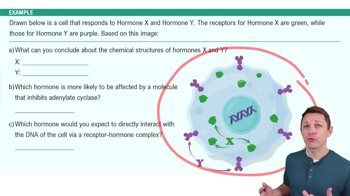Mark the following statements as true or false. If a statement is false, correct it to make a true statement.
a. The thirst mechanism is mediated by osmoreceptors located in the cerebral cortex.
 Verified step by step guidance
Verified step by step guidance Verified video answer for a similar problem:
Verified video answer for a similar problem:



 7:16m
7:16mMaster Osmoregulation and Nitrogenous Waste with a bite sized video explanation from Bruce Bryan
Start learning